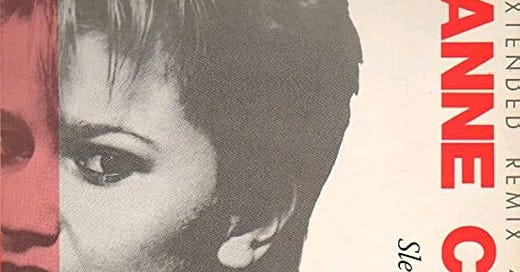Rediscovering the Uncharted Impact of Anne Clark in '80s Dance Music
The Twelve Inch 121 : "Sleeper In Metropolis" (Anne Clark)
Welcome, I’m ben Pe Dupre and this is “The Twelve Inch”, a newsletter that tells the history of dance music between 1975 and 1995, one twelve inch at a time.
If you’ve received this newsletter, then you either subscribed or someone forwarded it to you. If you fit into the latter and want to subscribe, please do so. That way you will not miss a single epi…
Keep reading with a 7-day free trial
Subscribe to The Twelve Inch to keep reading this post and get 7 days of free access to the full post archives.




